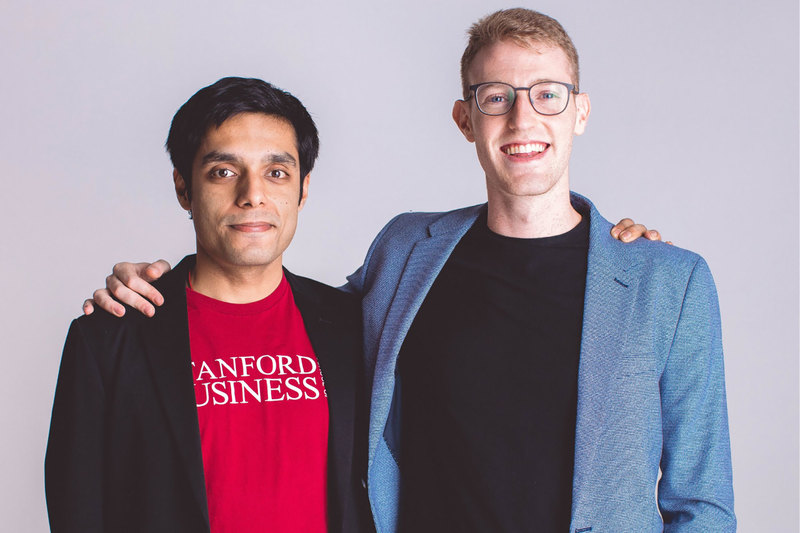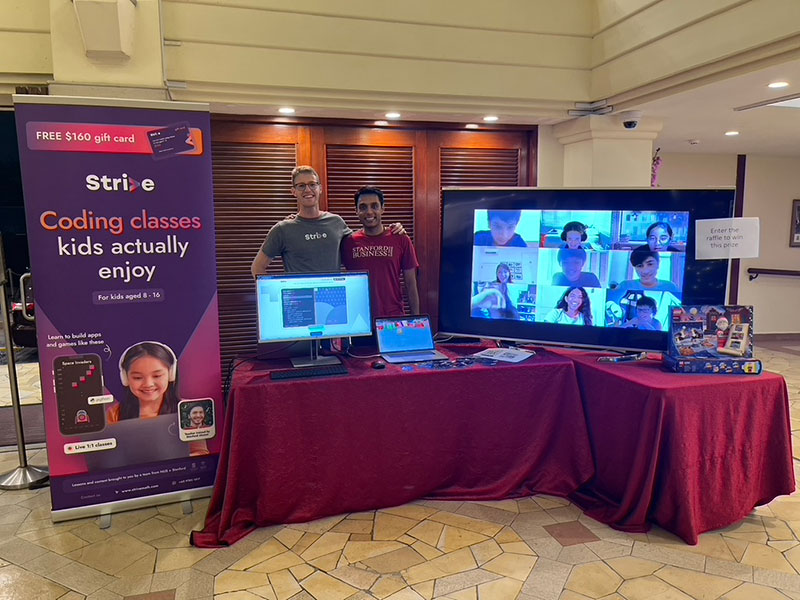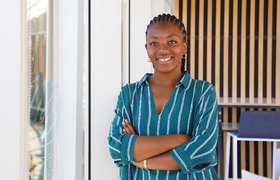Cracking the code: Strive’s latest windfall will help strengthen their offering
16 March 2023 | Story Kamva Somdyala. Photos Supplied. Read time 5 min.
“Coding education in school can become quite dry with old teaching methods and old examples. It isn’t as joyful or inspiring.”
As a person at the coalface of coding, University of Cape Town (UCT) alumni Tamir Shklaz had no illusions about how best to plug the coding gap and to move it away from what he calls “old teaching methods”.
Co-founded in 2020 with Pulkit Agarwal, enter Strive.
Together, they have built a coding school that has taught more than 1 000 kids and has trained and employed more than 60 teachers.
“A lot of my inspiration for Strive came from my time at UCT when I started my first start-up – a textbook marketplace – and I taught myself how to build apps or websites in order to build the start-up,” said Shklaz.
He said relative to the experience he had with coding, he wanted an experience for children that is more engaging and fun, and it began by constructing the programme to be visual.
“We use circles, colours and movement, and that’s what makes it really engaging for kids. The old way is very text-based. There is real-time feedback on what you are doing, and [on] your mistakes, and that process is very addictive as you make progress towards your final output.”

Their pool of students ranges from eight to 16 years old and are under the guidance of teachers who can “emotionally engage with students; be patient with them and keep them engaged with coding”.
Many of the teachers are university students, with most being from UCT owing to the networks Shklaz nurtured when he was a student at the institution.
The students have a range of profiles – from those interested in gaming to mathematics enthusiasts.
“We rely on active learning, rather than passive learning. Students are in charge of their own learning and actively engage as opposed to listening to the teacher communicate about the subject.”
This way, Shklaz said, a symbiotic learning relationship forms because the teachers also benefit from this way of teaching.
“The transformation that can happen in a student’s life when they fall in love with learning, when they feel self-confidence and ownership about learning, is massive and we want to take that to every student in the world,” Shklaz added.
Last month, the Singapore-based company raised $1.3 million in seed funding, led by YCombinator (an accelerator programme). Less than 10 South Africans have ever been accepted into the YCombinator start-up accelerator programme, Shklaz pointed out.
“We want to create a team that understands what the effects of their work on students will be.”
“The money has gone into scaling the team by hiring tech content teachers. It is also enabling us to expand different ideas and explore how we can grow better and … be better,” he said.
“We want to create a team that understands what the effects of their work on students will be.”
In the coming year, the company aims to:
- develop their own coding editor, specialised for empowering teachers to teach and students to learn to code
- create engaging coding content for kids of different ages, levels, and interests
- explore novel ways of assessing kids’ mastery of coding, not just their ability to pass a test
- develop eacher training.
“The rapid changes in technology mean that every five years, what we used to know will be irrelevant or we won’t need it anymore. And in a world like that, no individual skill is that important; rather, what’s important is the ability to adapt and learning how to learn. That’s the biggest gift we can give to students,” Shklaz concluded.
 This work is licensed under a Creative Commons Attribution-NoDerivatives 4.0 International License.
This work is licensed under a Creative Commons Attribution-NoDerivatives 4.0 International License.
Please view the republishing articles page for more information.










